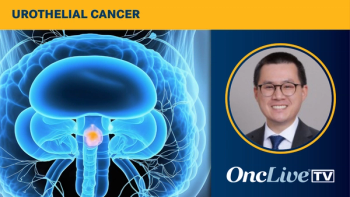
Educating Patients on Maintenance Therapy in mUC
Jeanny Aragon-Ching, MD: I believe that—and this is true for avelumab and all other checkpoint inhibitors that we have been used to using in practice—the education of patients, particularly in the evaluation and understanding of adverse effects, is very important. Unlike chemotherapy, where we often tell patients, “Look, once you’re done with the chemotherapy or once we hold the chemotherapy, a lot of the adverse effects actually do improve and resolve.”
It’s not quite as much with immunotherapy, so it’s not enough for us to stop. We have to institute steroids. Educating these patients is very important, as well as recognizing the potential immunotherapy adverse effects. There are practical applications in avoiding, or maybe mitigating, infusion reactions. Giving them premedications is unique to avelumab.
With a lot of other checkpoint inhibitors, we don’t usually premedicate, but we do with avelumab with the use of Tylenol or Benadryl to avoid the infusion-related reactions. Education is a very important part of supportive care. If they do ever develop any immune-related toxicities, then steroids or other immunosuppressive drugs are key.
Shilpa Gupta, MD: We talk to the patients about the benefits seen in the study and the commitment of every-2-week dosing. A lot of patients who come to tertiary referral centers come from far away, and it may not be feasible for everyone. Even on study, a lot of patients missed a lot of doses for a variety of reasons. The study does not have an end point to avelumab. Patients can continue until they progress. It is a long-term commitment, and we do present the risks and benefits to the patients and go from there.
The key for my practice that I use is, I tell them the benefits of immunotherapy as opposed to chemotherapy whenever I’m prescribing it. Then I always make it clear that even though immunotherapy is very well tolerated for the most part, there can be some severe adverse effects. We have seen a lot of them, but they are still developing, so patients need to be really on top of their symptoms and inform us, even if they notice a subtle change from baseline, because we could be missing something important. There’s a lot of counseling that goes into this, and we give a lot of materials to the patients so they understand when to call us.
Transcript Edited for Clarity






































